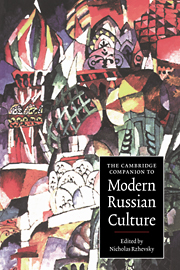5 - The West
from Boundaries
Published online by Cambridge University Press: 28 May 2006
Summary
Throughout her history, Russia has assumed an ambivalent attitude toward the West, an attitude conditioned by the diverse sources of initial contact. The influence of Byzantium, realized through Russia’s conversion to Christianity toward the end of the tenth century, was of signal importance. By devising an alphabet for the spoken language, her missionaries gave the Kievan state access to an established literature and facilitated the further development of an indigenous culture based upon the tenets of Orthodoxy. Yet the Greek heritage common to the cultures of Europe assumed particular forms of expression in Russia.
Many of the documents which were available in translation contributed to a conservative definition of the relations between church and state and of the ruler’s rights and duties. Together with Christian doctrine, they were “incorporated into the political structure of the state of Kiev … [and] became a basis for Russia’s further evolution.”1 With the decline of more democratic traditions during the ensuing period of Mongol conquest, this autocratic inheritance from Byzantium gained the ascendancy, putting its stamp upon the emerging state of Muscovy.
The fragmentation of Kievan Rus’ altered the primary means of communication with the West, Novgorod assuming central importance by virtue of its location on the trade routes linking Northern Europe with the Middle East. A high rate of literacy among its landowning classes and the assembly of free citizens in the veche or town council contributed to the success of a republican form of government quite unlike Moscow’s. Its function as one of medieval Europe’s most important manufacturing towns and its close commercial ties to the Hanseatic League further strengthened its identity with the West.
- Type
- Chapter
- Information
- The Cambridge Companion to Modern Russian Culture , pp. 85 - 102Publisher: Cambridge University PressPrint publication year: 1999



